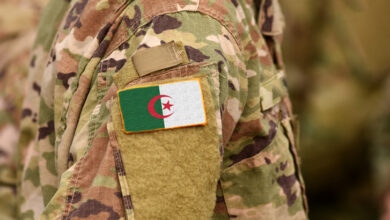World
Amnesty International Accuses Nigerian Military Of Burning Villages, Displacing People

International Rights Group, Amnesty International, on Friday accused the Nigerian military of burning down villages and forcibly displacing thousands of people in response to an increase in attacks by militant groups in the country’s northeast.
According to Amnesty International, the Nigerian soldiers razed three villages after forcing the people to leave their homes in the northeastern state of Borno in January. The human rights group said it interviewed 12 victims and reviewed satellite images that showed several large fires in the area.
During interviews, the residents explained how soldiers went from house to house and collected people and then made them walk to the main road and board trucks.
“We saw our houses go into flames,” recalled a 70 years old female witness. “We all started crying.”
The trucks took over 400 people to a camp for people displaced by the conflict in Maiduguri, the main city in the region.
“These brazen acts of razing entire villages, deliberately destroying civilian homes and forcibly displacing their inhabitants with no imperative military grounds, should be investigated as possible war crimes,” said Osai Ojigho, Director of Amnesty International Nigeria.
The rights group said soldiers also detained six men, subjected them to ill-treatment and held them for almost a month before releasing them without charge last month. It cited Nigerian Army statements that said six Boko Haram suspects were arrested and hundreds of captives freed from the militants.
“They say they saved us from Boko Haram, but it’s a lie,” another witness told Amnesty.
Nigeria’s military has frequently been accused of human rights abuses in its decade-long fight against Boko Haram and other Islamist insurgent groups. Boko Haram has increasingly carried out attacks in northeastern Nigeria since December 2019. In response to the attacks, the Nigerian military has resorted to unlawful tactics that have had a devastating effect on civilians and may amount to war crimes.






